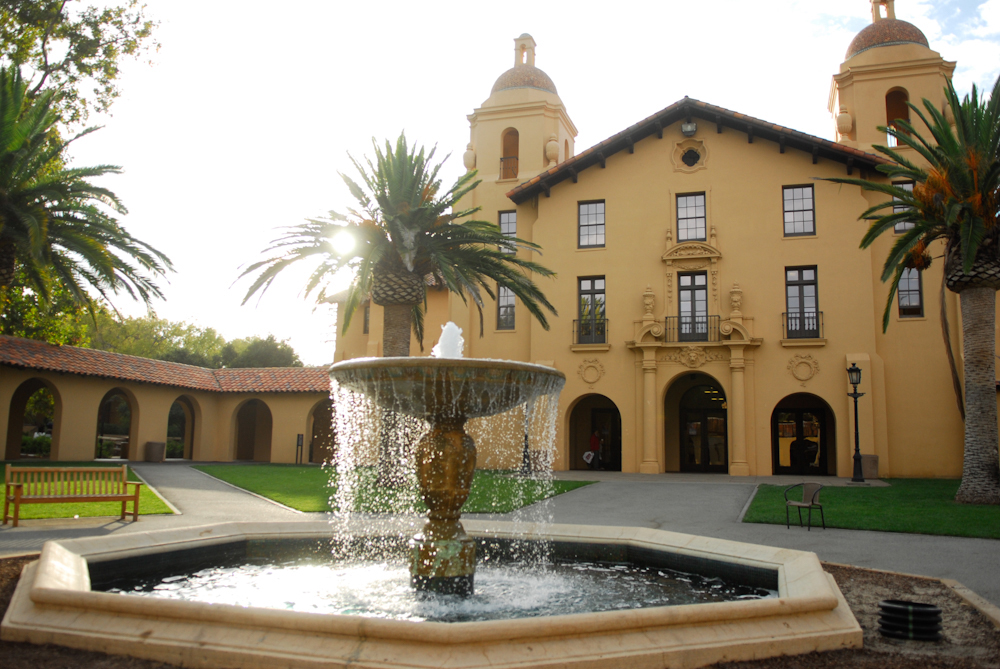The Associated Students of Stanford University (ASSU) held three focus groups with undergraduate students last week — free boba included — to discuss potential ethical investing strategies for the ASSU’s $1.2 million Cardinal Fund. Responses to a survey distributed at the focus groups revealed students to be generally supportive of this future shift.
The Fund comprises 5%, or $1.2 million, of the ASSU’s total funds. The ASSU’s funds are currently used toward student organizations, ASSU business ventures and ASSU leadership operations, according to a slideshow presented at the focus groups.
ASSU President Erica Scott ’20 and Stanford Student Enterprises (SSE) Analyst Richa Gupta ’21 coordinated the focus groups. The ASSU will host two more sessions next week, on Nov. 18 and 19, with graduate students.
The Fund was originally partitioned out from the rest of ASSU funding to be invested by students enrolled in ECON 183: “The Cardinal Fund,” in which students had the opportunity to act as wealth managers for the fund over the course of two years. The course was discontinued this year, freeing the money for new investment by the ASSU.
Though ethical divestment and reinvestment has been an ongoing conversation in the ASSU, Scott has expressed interest in taking specific actionable steps on the issue. Shortly after she took office in May, the ASSU convened an Ethical Investment Task Force, composed of ASSU members, to provide recommendations, which in turn launched the student forums.
As members of the task force, Scott and Gupta expressed an interest in moving from traditional profit-driven investing to environmental, social and governance (ESG) investing, a form of socially responsible investment.
“We don’t know how much resistance we’ll face from the Board of Directors,” Gupta said, referring to the group of students, Stanford administrators and external community members that provides recommendations to SSE and the ASSU. “So we want to make sure that we’re engaging student feedback to make educated decisions.”
The format of the forums was altered after the first of the three focus groups held last week.
“Our [Monday] focus group was more of a conversation,” Gupta said. “We realized it was really hard to take down notes, so we decided to shift to the survey format [for Tuesday and Friday].”
The survey distributed to participants included questions asking them whether divestment and reinvestment is important to them, how they rank the importance of issues like private prison and fossil fuel divestment, and how often the ASSU should check in with students regarding the status of its funds.
Scott reported that students have so far been supportive of the ASSU’s proposed transition to ESG investing, adding that they have also introduced unique insights on potential ways for the ASSU to continue involving students in investment decisions. In total, Scott hopes to get 30 to 40 survey responses before the end of the year.
“We didn’t want to do a whole campus survey,” Gupta said. “This way, we could make sure students responding cared about the issue, since this decision is a big deal.”
Scott said the survey questions could be confusing for those without a background in finance, and the forums enabled the survey questions to be explained to students.
In response to concerns that lower returns on investment could harm student activity budgets, Scott said, “The [Cardinal Fund] is not actively funding most of our activities — it’s more of a passive [fund], so it makes it less critical to get high returns.”
“ESG investment is now on par with traditional investing in terms of risk, so I don’t think we’re particularly worried about it receiving lower returns,” she added.
However, Gupta said the ASSU was not planning to place investment at risk.
“It’s really risky to sell 22 million at one point,” Gupta said. “We also want to make sure the reinvestment is financially viable.”
Scott reported that 22 students had reserved a spot in advance of the five forums. Attendance hovered around six or seven students at each of the three focus groups held so far. After all five focus groups, Scott will present mutual fund recommendations to the SSE’s Board of Directors in January.
This article has been corrected to reflect that the Board of Directors is a group of students, Stanford administrators and external community members that provides recommendations to SSE and the ASSU. A previous version of this article misstated that the Board of Directors is a group of students that oversees SSE. This article has also been corrected to reflect that ASSU funds are unrestricted in their use, and therefore are not part of an endowment. The Daily regrets these errors.
